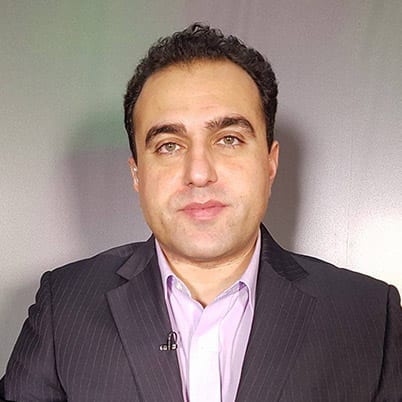The killing of Yemen’s former leader Ali Abdullah Saleh earlier this month at the hands of the Houthis has dramatically raised the stakes of the Yemeni conflict. Freed from a half-hearted alliance with a former foe, the Houthis have pressed home their advantage by consolidating power in Sana’a.
One immediate result of Saleh’s assassination is that the Houthis (officially known as the Ansar Allah movement) now have even less incentive to compromise with their foes. This is in keeping with a consistent process of radicalisation which has seen the Houthis prioritise their ideological commitments over political pragmatism.
Whilst a radicalised Houthi movement entrenched in the north of the country is inimical to long-term stability in Yemen, the biggest immediate obstacle to peace is the Kingdom of Saudi Arabia (KSA) which continues to prosecute an unwinnable war in Yemen. Predictably, Saleh’s departure has intensified the conflict inasmuch as it has removed the KSA’s sole effective political pressure point on the Houthis.
But the real problem for Saudi Arabia is not so much that it cannot influence the Houthis’ strategic calculus, but that the Kingdom cannot even create and sustain a viable coalition against the Houthis. On top of that the United Arab Emirates’ (UAE) deep involvement in the war makes conflict resolution even harder to achieve.
A radical movement
The firing of yet another medium range ballistic missile at Riyadh by the Houthis underscores the potential for a dramatic escalation in the conflict. Today’s firing of a ballistic missile (which was reportedly intercepted) is particularly symbolic and meaningful in so far as it comes on the heels of America’s United Nations Ambassador Nikki Haley’s presentation in Washington. Standing in front of a charred shell of an alleged Houthi-fired missile, Haley unequivocally traced the missile’s origin to Iran.
Read: Yemen’s Houthis ready to hand over Saleh’s body to family
If Iran does have a hand in the transfer of advanced ballistic missile technology to the Houthis, then it would be entirely in keeping with the Islamic Republic’s relatively low-cost intervention in the conflict. In stark contrast to Saudi Arabia’s costly bombing campaign, Iran has kept a low footprint by working behind the scenes to augment the Houthi’s strategic military capability.
The deployment of short to mid-range ballistic missiles called Burkan-2 – which is possibly modelled on the Iranian Qiam family of ballistic missiles – is designed to be a deterrent by influencing Saudi’s strategic calculus in the war. Foremost, it sends an unmistakeable message to Saudi rulers that they cannot expect to bomb Yemen with impunity.
The acquisition of this capability by the Houthis worries the United States not so much because it poses a threat to Saudi civilians (as Haley claimed in her dramatic presentation) but because it reinforces the Houthis’ profile as the most powerful actor in Yemen’s fragmented political and military scene.
Coupled with their ideological zeal – as demonstrated by their trademark slogan of “God is the Greatest, Death to America, Death to Israel, Curse the Jews, Victory to Islam” – the emergence of the Houthis as a powerful independent player on the southern tip of the Arabian Peninsula is a cause of much concern for the US.

Vehicles are damaged after clashes took place between the Houthis and former Yemeni President Ali Abdullah Saleh’s supporters in Sanaa, Yemen on 5 December 2017 [Mohammed Hamoud/Anadolu Agency]
Fragmented coalition
Saleh’s difficult relationship with KSA notwithstanding, the Saudis always held out the prospect of eventually using the deposed leader to erode the Houthi’s political position. Saleh’s killing removes this option forever and leaves the Saudis at an even greater political impasse.
Whilst Saudi may be tempted to dramatically escalate the conflict – both in the wake of Saleh’s demise and the firing of ballistic missiles at Riyadh – absent a coherent political strategy, military escalation alone is unlikely to produce desired outcomes.
Read: Yemeni army pushes Houthis from outpost in southern Yemen
At the political level, the Saudi-led coalition faces a wide range of deep and apparently intractable challenges. Yemen’s internationally-recognised government, headed by the lacklustre Abd Rabbuh Mansur Hadi, is weak to the point of non-existence. Absent continuous support from Saudi and the UAE, Hadi’s token government would immediately collapse.
Beyond political symbolism, on-the-ground the Saudi-led coalition’s best hope of creating sustainable stability in Aden is to engage Al-Islah, a multi-factional Islamist coalition. KSA’s stepped up outreach to the Muslim Brotherhood component of Al-Islah, apparently with the approval of the UAE, may amount to something only if Saudi and Emirati leaders could overcome their own structural limitations in engaging with the Muslim Brotherhood, which they have proscribed as a “terrorist” group.
But working more effectively with Al-Islah only partially addresses the issues in Aden and the south of Yemen more broadly, including the long-term challenges posed by southern secessionists and extremist groups. It does little to address the Houthi challenge in Sana’a and the north.
To stop the situation from spiralling out of control, Saudi Arabia’s best option is to discontinue the military intervention with immediate effect. Absent a sustainable ceasefire, the re-partition of Yemen is all but inevitable.
The views expressed in this article belong to the author and do not necessarily reflect the editorial policy of Middle East Monitor.


![Former Yemeni president, Ali Abdullah Saleh [DplmtcObserver/Twitter]](https://i0.wp.com/www.middleeastmonitor.com/wp-content/uploads/2017/12/Ali-Abdullah-SalehDQREoq_X0AAuDqa.jpg?fit=1200%2C800&ssl=1)









